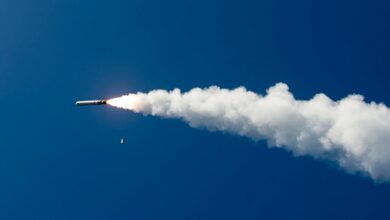North Korea Accuses US of ‘Intentionally’ Aggravating Relations
North Korea’s foreign ministry accused the United States of “intentionally” ramping up tensions by flying in joint military drills with South Korea, state news agency KCNA said Tuesday.
The allegation comes after Seoul and Washington announced on Friday more than 10 days of large-scale military exercises from March 13 to 23.
South Korea’s defense ministry also posted video online Monday they said showed war planes from both countries training together off the coast of the Korean peninsula.
“Despite our repeated warnings, the US intentionally continues to aggravate the situation,” the foreign ministry said in a statement dated Monday.
“The recent joint air drill… clearly shows that the US scheme to use nuclear weapons against the DPRK is being carried forward at the level of an actual war,” the statement added, using an acronym for North Korea’s official name.
The United States and South Korea have said the upcoming planned exercises are defensive, but Pyongyang sees them as a rehearsal for invasion.
“We express deep regret over the irresponsible and worrying muscle-flexing of the US and South Korea, which are constantly pushing the situation in the Korean peninsula to an unpredictable state,” KCNA quoted the foreign ministry’s statement as saying.
North Korea demands “an immediate stop to the military hostile acts of disturbing peace and stability in the Korean peninsula,” the statement added.
“If the dangerous military provocations of the US and South Korea continue… there is no guarantee that there will be no violent physical conflict in the Korean peninsula where huge armed forces of both sides are in acute confrontation.”
State media reported Sunday that North Korea had called on the United Nations to urge a halt to the drills.
Following a year in which Pyongyang declared itself an “irreversible” nuclear power and fired a record-breaking number of missiles, Seoul and Washington have moved to ramp up joint exercises and redeploy US strategic assets to the region.












